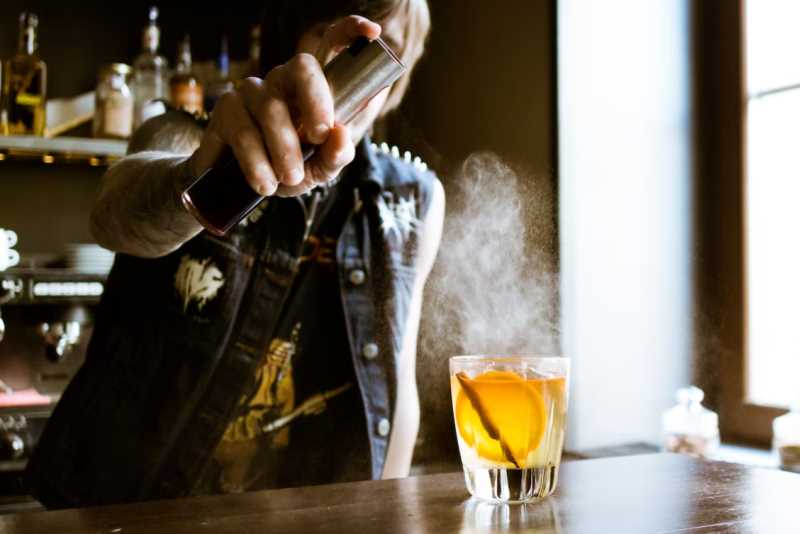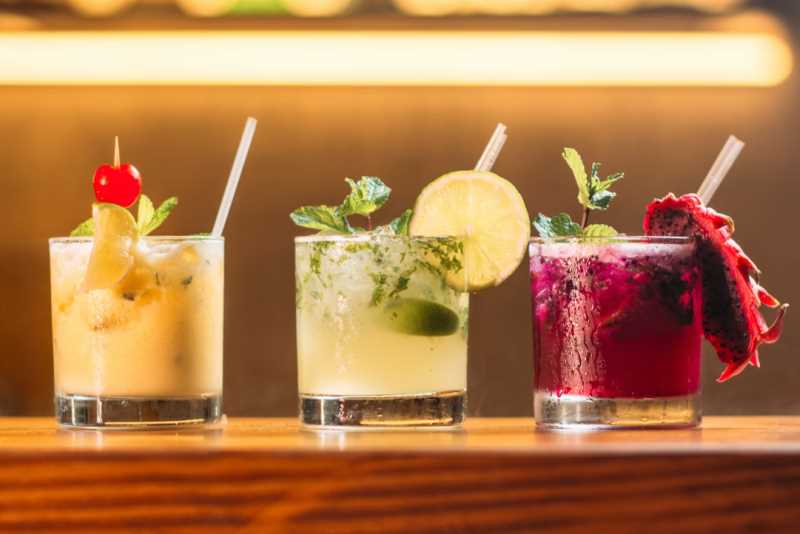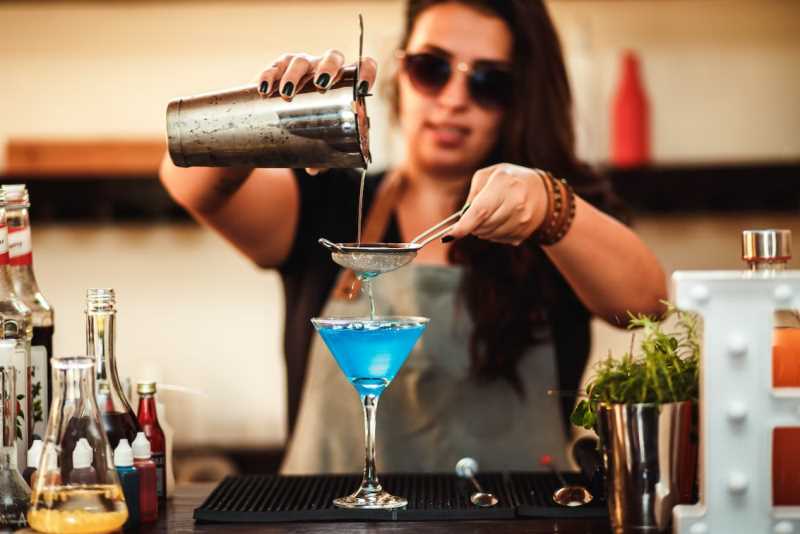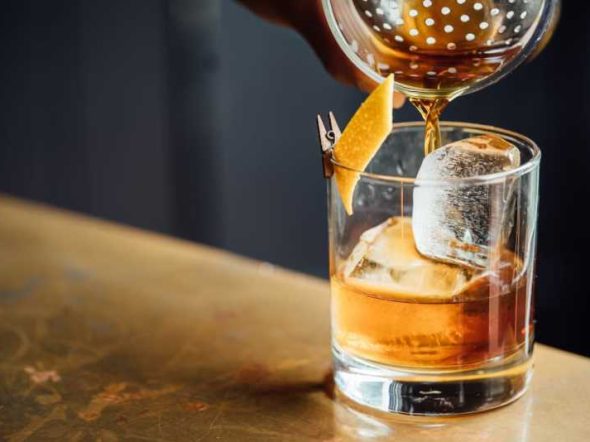As a professional drink-maker, it may seem as if you have to choose between two completely different career paths: bartending and mixology. But with the rise of mixology, you can now bring your skills and knowledge to both the professional and social situations!
What is Mixology?
Mixology is the art and science of making cocktails. It is a combination of technical aspects, such as accurately measuring and mixing ingredients, and creative aspects like coming up with new flavor combinations.
There are many different ways to approach mixology, but the most important thing is to have fun and be creative. There are no rules, so experiment. The only way to get better at mixology is to practice, so get behind the bar and start mixing!

Difference Between Bartending and Mixology
There is quite a difference between bartending and mixology. Bartenders make drinks to order, while mixologists create cocktails. Mixologists often have a greater knowledge of the science behind making drinks, and they are creative in coming up with new flavor combinations.
Bartending is about engaging with the customer and making sure they have a good time; but there’s more to it than just making drinks.
Ideally, to be a great bartender, you must be able to multitask and keep your cool under pressure. You also need to know how to make a wide variety of drinks, so you can always make something the customer will enjoy.
Mixology is all about creating new and innovative cocktails. If you’re a mixologist, you spend your time coming up with new flavor combinations and experimenting with different ingredients. An understanding of the science behind making drinks is important, so you can create cocktails that are both delicious and visually appealing.

Benefits of a Mixology Certification
A mixology certification can benefit your career in a number of ways. For one, it can help you stand out from the competition when applying for jobs. Certification also demonstrates your commitment to the profession and shows potential employers that you have the skills and knowledge to excel in the role.
In addition, a mixology certification can lead to higher earnings. Mixologists who have completed a certification program are also more likely to be promoted and receive raises more frequently.
So, if you’re looking to take your bartending career to the next level, consider getting certified!
How to Get a Mixology Certification
There are several ways to go about mixology, depending on your goals and situation. If you’re interested in becoming a professional mixologist, one of the first steps is to get certified. This tells potential employers that you have the skills and knowledge necessary to create delicious cocktails.
One popular option is to take an online course. They will teach you the basics of bartending, including how to make popular drinks and how to mix ingredients properly. These can be found through many different providers, and they vary in length and cost. One great option is A Bar Above, which offers a mixology program that lasts from six to eight weeks.

Another option is to attend a physical mixology school. These can be found in many major cities, and they usually offer more comprehensive training than online courses. Once you have a good foundation in mixology, you can start looking for work. Many bars and restaurants are always on the lookout for talented mixologists.
Once you have your mixology certification, it’s important to keep your skills sharp by continuing to practice and learn new techniques. Stay up-to-date on the latest trends in the industry and experiment with new recipes. By doing this, you’ll be able to create unique and exciting cocktails that will keep your customers coming back for more.
Real-World Applications of Mixology Skills
Mixology is more than just making drinks. It’s a combination of art and science and requires a great deal of skill and knowledge to master. Once you’ve learned the basics, you can put your skills to use in the real world. Here are just a few examples:
Home entertaining
Whether you’re hosting a small gathering or a large party, being able to make delicious cocktails is sure to impress your guests.
Restaurant work
Many restaurants now have craft cocktail menus, so mixology skills can help when applying for jobs in the food and beverage industry.
Event planning
If you’re planning weddings, corporate events, or other special occasions, being able to create custom cocktails can add that extra touch of sophistication.
Catering
Similar to event planning, catering businesses often look for mixologists to help them create unique menu items for their clients.
Product development
Have a great idea for a new drink? Mixologists with an entrepreneurial spirit can use their skills to develop new products for the marketplace.
Teaching
If you’d like to share your knowledge with others, becoming a mixologist is a great way to start an educational career in the food and beverage industry.
Writing
Mixology is still a relatively new field, but if you’re an aspiring writer who loves to get behind the bar, you might want to consider writing about cocktails for local publications or even authoring your own book!
Consulting
If you have a lot of experience as a mixologist, some restaurants may be willing to hire you for private consulting services where you can provide personalized assistance on their cocktail menus and beverage programs.
Entertainment
Are you passionate about performing? Mixologists are often hired by high-end nightclubs or other venues looking for entertainment that’s tied to their drinks.
Mixology is a field that is often overlooked but can be extremely valuable to those who are looking to enter the professional world. Not only does mixology require creativity and an eye for detail, but it also demands knowledge of different cultures and customs.
Those who master the art of mixology will find themselves in high demand by businesses and individuals alike. If you’re looking to stand out, consider looking into mixology certifications.
